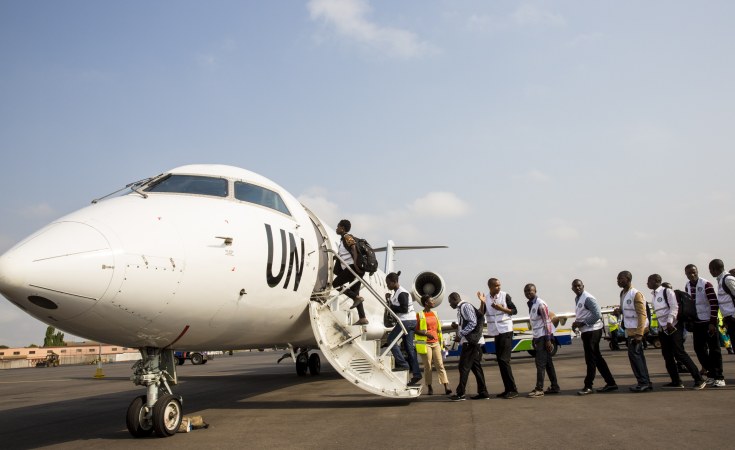Recent Ebola convening pushes West African-led public health breakthrough
Ebola. We've all been talking about it. It's happening here in West Africa. It affects us all. It affects our work, our lives, our families, the entire development of our region. And yet, where amidst all this turmoil and suffering are the West African voices? Where are the region's doctors, researchers, clinicians and even our sociologists in this plight?
We have heard very little from those living on the ground, living amidst this deadly reality - those quietly working away, watching and waiting. But for what? And why?
It had long since passed time for West African voices to come together and to critically engage in a discussion that would set forward a plan that positions the region - the most Ebola-affected area on the planet - as thought-leaders and key actors in this fight.
When OSIWA and OSF's Public Health Program decided to support a convening of West Africa's medical community - a meeting to discuss the various Ebola contexts and assess ways of moving forward - I must admit I was a bit skeptical. I was unsure not because I didn't think we had the people in the region to do this. But because when organizing a 'meeting of heads' there is often a lot of talk and very little action. How would we congregate a group of disparate medical leaders from across the region to arrive at a clear, concise and most importantly achievable action plan over the course of two days? I have attended enough workshops and meetings to know this is not always, as they say in French, evident.
But to admit that I was pleasantly surprised, is not an overstatement.
Admittedly, I had some serious concerns during the first day - a day when there was a lot of 'spinning dialogue' and very little concrete and focused discussion - the second day did produce my awaited 'aha' moment. After a day of discussing the Ebola contexts in the most affected countries, including current trends of the epidemic and standards of care, we actually did arrive at a consensus - a tangible series of actions that we are putting in place now for the medium to long-term benefit of our citizens and our public health systems.
So what's our first priority?
Throwing that initial stone is often the hardest step.
But our first goal is to get the advocacy group started. This West African-based task force will, among other activities, help provide input on the establishment of an African Centre for Disease Control (CDC). They will also help advocate for a regional accreditation body that monitors and ensures all labs in the region meet international standards, and will work with health ministries to improve their national health systems and ethics committees. In countries where trials are planned, but for which no protocols have been approved yet, this advocacy group will work with national ethics committees of those countries to ensure that the proposed protocols address key issues, such as communities' access to medicine and vaccines if they are proven effective.
If we can get this task force up and running - and I am optimistic under the leadership of Professor Mboup, who heads the virology and bacteria laboratory at Cheikh Anta Diop University in Dakar, that we can - we will be well on our way to not only helping mobilize West African voices, but also supporting an initiative that helps build and sustain the stronger public health institutions our region so desperately requires. And this, most surely, will not simply be a matter of talking heads.
Anael Betseba Ngando is OSIWA's Executive Program Assistant
Follow Anael on Twitter @a_ngando


